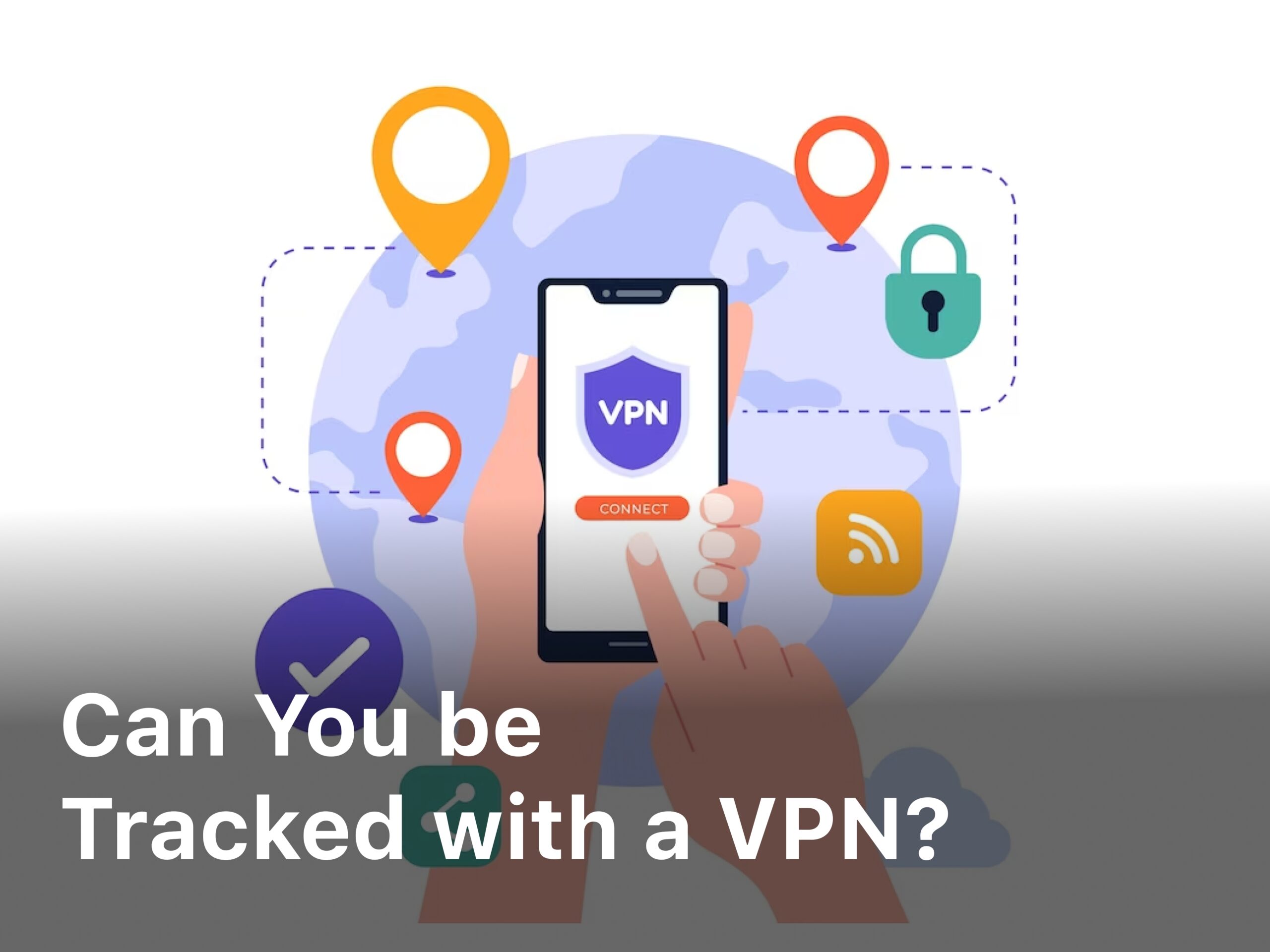Can You be Tracked with a VPN?
Ever wonder if that VPN you’re using to hide your online activity is really keeping you safe from prying eyes? You’ve heard VPN stands for ‘virtual private network’ and it’s supposed to mask your internet traffic and location, but can you really trust it? Before you go downloading the first free VPN you stumble across or clicking ‘buy now’ on an overpriced premium service, you need to understand what a VPN really does and doesn’t do. The truth is, while a VPN can help shield your online activity from some snoopers, it’s not a cloaking device. There are ways you can still be Tracked with a VPN. But don’t freak out just yet. We’re going to walk you through how VPNs work, who might still be able to see what you’re doing, and how to choose a VPN service you can trust. Knowledge is power, so read on to get the real deal on VPNs and learn how to take control of your online privacy.
How VPNs Work to Hide Your Identity
A VPN, or virtual private network, hides your online identity and activity by masking your IP address and encrypting your internet traffic. How exactly does it work to conceal what you’re up to?
When you connect to the internet, your internet service provider assigns you an IP address. This address identifies your location and can be used to see what websites you visit and what you do online. A VPN gives you a different IP address, hiding your real one.
Once connected to a VPN, all your internet traffic is encrypted and routed through a VPN server. This makes it seem like you’re accessing the internet from the location of the VPN server. So if the server is in the US but you’re in Europe, it will appear as if you’re in the US. Your ISP and anyone else spying on your activity only sees encrypted traffic going to the VPN server, masking what you’re really up to.
A VPN also hides your online footsteps by masking your IP address and preventing monitoring of your browsing habits and download history. It creates an encrypted tunnel for your data to flow through, shielding you from prying eyes. The VPN provider’s no-logging policy also means they don’t keep records of your online activities and internet destinations.
Using a VPN is an easy way to surf the web anonymously and prevent online tracking of your virtual whereabouts and interests. Staying private in an age of mass surveillance and data harvesting is as simple as connecting to a VPN. Your online privacy is worth protecting, so get started today!
Your Real IP Address Is Still Visible With a VPN
A VPN hides your online activity and location, but it doesn’t hide your real IP address. Your Internet Service Provider (ISP) can still see your IP address and in some cases track your activity.
When you connect to a VPN, all your internet traffic is encrypted and routed through the VPN server. So, your ISP can only see that you’re connected to the VPN, but not what websites you access or information you send. However, they can still see your real IP address that’s assigned to your internet connection.
Some ISPs actively monitor customer activity and sell browsing data and personal details to third parties. A VPN prevents them from seeing what you do online, but they still know it’s you doing it based on your IP address. The IP address is like your home address for the internet, uniquely identifying your connection.
There are a couple ways around this:
- Use a VPN that offers dedicated IP addresses or “static IPs”. This gives you an IP address shared only with you, masking your real one. Some VPNs charge extra for dedicated IPs.
- Use a VPN that regularly changes your IP address. Some VPN services include an IP cycling feature that automatically assigns you a new IP address every few minutes or hours to make it difficult to track.
- Use a VPN in combination with the Tor browser. Tor hides your IP address and bounces your connection through relays for even more anonymity. However, Tor can be slower than a VPN alone.
- Ask your ISP not to monitor and sell your data. Some ISPs allow customers to opt-out of data monitoring programs. It never hurts to call your ISP and ask, but there’s no guarantee they’ll comply.
Using a VPN is a great first step to hiding your online activity, but for true anonymity you may need to take additional precautions to mask your real IP address. Stay safe out there!

VPN Logging Policies: What to Look For
Logging Policies
A VPN’s logging policy refers to what data they collect and retain about your internet activity and for how long. This is important because if a VPN logs too much information about you, your online anonymity could be compromised. Look for a VPN with a strict no-logging policy.
The best VPNs will not log or store any of your personal information, online activity, or IP addresses. They will not track your bandwidth usage, websites visited, or files downloaded. Ideally, the only information they will keep is your email address for account purposes and payment info if you purchase a subscription. Some VPNs may log basic connection data for a short time to monitor network performance and security issues, but then delete those logs.
- Avoid any VPN that logs extensive connection data, traffic information or personally identifiable details.
- Look for clearly stated no-logging policies and read reviews to determine if they actually follow through. Some VPNs have been caught logging despite claims not to.
- Consider using a VPN that allows anonymous payment methods like Bitcoin to avoid linking your account to your identity.
While a strict no-logging policy is best for privacy, some VPNs do log certain data for a short time to comply with laws or improve their service. If logs are kept, look for a VPN that:
•Clearly states what information they log and for how long (a few days at most)
•Does not log online activity, websites visited or files downloaded
•Does not share or sell logs or user information to third parties
•Allows you to pay anonymously to avoid logging payment info
•Is located in a privacy-friendly country with strong data protection laws
Using a VPN with the right logging policy and practices in place will help ensure your online activity and identity remain private. But as with any technology, there is always some risk of vulnerability if misused. So take appropriate precautions to safeguard your digital life.
Advanced Tracking Methods Used Today
While a VPN does hide your online activities and location, advanced tracking methods today can still pose risks to your privacy.### Device Fingerprinting
Your devices have a digital fingerprint that can be used to identify you based on things like:
- Screen resolution
- Browser plugins
- Operating system
- Time zone
Trackers piece together these details to create a unique fingerprint for your device. Even with a VPN, this fingerprint can still be used to track your behavior across websites.
Supercookies
“Supercookies” are tracking files that reinstall themselves even after you delete them. They’re hard for users to detect and remove, allowing trackers to persistently gather your data over time. Supercookies can contain info like your interests, location, and browsing history.
IP Address Leaks
A VPN masks your real IP address, but it’s possible for your real IP to leak in some situations. Things like WebRTC (a protocol for voice/video chatting), BitTorrent clients, and IPv6 connections can potentially expose your actual IP address, allowing trackers to identify your location and online activities.
Correlating Data Points
Advanced tracking systems use algorithms to correlate data points from many sources, like your browsing history, location, social media, and more. By connecting these dots, trackers can develop very detailed profiles and gain insights into your identity, preferences, and behaviors, even if parts of your traffic are obscured.
While a VPN is a good first step, additional precautions may be needed to limit how much of your data is collected and connected by today’s sophisticated tracking systems. Using privacy-focused browsers, ad blockers, and other tools can help reduce tracking and keep your information as private as possible. But ultimately, the more data you share online, the more at risk your privacy becomes.
Related Article : Don’t Ignore Google’s Critical Security Alerts: How to Protect Your Online Identity
Best Practices for Staying Anonymous Online
Use a VPN
A virtual private network, or VPN, helps anonymize your online activity by masking your IP address and encrypting your internet connection. When connected to a VPN, your internet traffic is routed through an encrypted tunnel to a server operated by the VPN service. This hides your IP address and prevents others from seeing what websites you access or information you send and receive.
Choose a reputable VPN provider
Do some research to find a VPN provider that does not keep logs of your activity or share your information. Many free VPN services log your data and online activities, so it’s best to choose a paid service with a strict no-logging policy. Look for providers that accept anonymous payment methods like cryptocurrency or prepaid gift cards. Some highly-rated options are NordVPN, ExpressVPN, and ProtonVPN.
Use an anonymous browser
In addition to a VPN, use an anonymous browser like Tor Browser that hides your online activity and location. Tor, which stands for “The Onion Router,” bounces your communications around a distributed network of relays to hide the source and destination. It prevents someone watching your internet connection from knowing what websites you visit or seeing your online activities.
Be cautious of public Wi-Fi
Public Wi-Fi networks are not secure and can allow others to see your online activities. Never conduct sensitive activities like online banking, shopping or accessing private accounts on public Wi-Fi. If you must use public Wi-Fi, always connect to a VPN to encrypt your connection.
Additional tips
• Use an anonymous email service like ProtonMail that does not store IP addresses or share user data.
• Pay with anonymous methods such as cryptocurrency, prepaid gift cards or cash.
• Use an ad blocker to prevent tracking by advertisers.
• Clear your browser’s cache, history, and cookies regularly.
• Avoid using your real name or sharing personal details online whenever possible.
Conclusion
So there you have it. While VPNs can help mask some of your online activities and hide your location, they aren’t a foolproof way to stay completely anonymous. If maximum privacy is your top concern, you’ll want to take additional precautions like using a VPN with a strict no-logging policy, choosing a VPN located in a privacy-friendly country, enabling kill switches, using cash to pay anonymously, and avoiding logging into accounts that can identify you. For most casual internet users though, a reputable VPN should provide enough protection for basic online privacy and security needs. Just go in with realistic expectations about their limitations. Stay safe out there!




